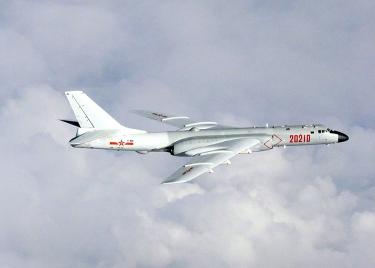China is destabilizing the Indo-Pacific region, US Secretary of Defense Mark Esper said yesterday, accusing Beijing of predatory economics, intellectual property theft and “weaponizing the global commons.”
The comments by Esper on his first overseas trip as secretary threaten to inflame already heightened tensions between Washington and Beijing as they are locked in an escalating trade dispute.
China’s increasing assertiveness, especially in the energy-rich South China Sea, has raised concerns within the region and the US is challenging Chinese maritime hegemony and seeking stronger ties with nations pushing back against Beijing.
“We firmly believe no one nation can or should dominate the Indo-Pacific and we are working alongside our allies and partners to address the region’s pressing security needs, Esper told reporters in Sydney.
“We also stand firmly against a disturbing pattern of aggressive behavior, destabilizing behavior from China. This includes weaponizing the global commons, using predatory economics and debt for sovereignty deals, and promoting state-sponsored theft of other nations’ intellectual property,” he said.
China has unnerved the region and angered the US by installing military equipment and other facilities on artificial islands it has built in the disputed South China Sea.
China claims large parts of the South China Sea through which about US$3.4 trillion in shipping passes each year.
Countries including Taiwan, Malaysia, the Philippines and Vietnam contest the territorial claims.
US Secretary of State Mike Pompeo on Friday decried “decades of bad behavior” from China that have hampered free trade, laying out a case at a Southeast Asian forum in Bangkok for Washington’s trade spat with Beijing.
US President Donald Trump on Thursday slapped 10 percent tariffs on US$300 billion in Chinese imports, stunning financial markets and ending a month-long trade truce.
China on Friday vowed to fight back.
Esper and Pompeo yesterday met with their Australian counterparts in Sydney at an annual security forum where the US and Australia pledged to strengthen opposition to Chinese activities in the Pacific.
The US and its Western allies worry that China is using foreign aid to secure greater influence over small Pacific countries, which control vast swathes of resource-rich ocean.
Australia, traditionally the major power in the South Pacific, has promised up to A$3 billion (US$2.04 billion) in grants and cheap loans to counter what Washington describes as China’s “payday loan diplomacy.”
“Cooperation with us and our Australian friends bring mutual benefits, not zeros, deals where one side wins and other risks losing,” said Pompeo in a thinly veiled criticism of China’s aid.
Source: Taipei Times - 2019/08/05





















